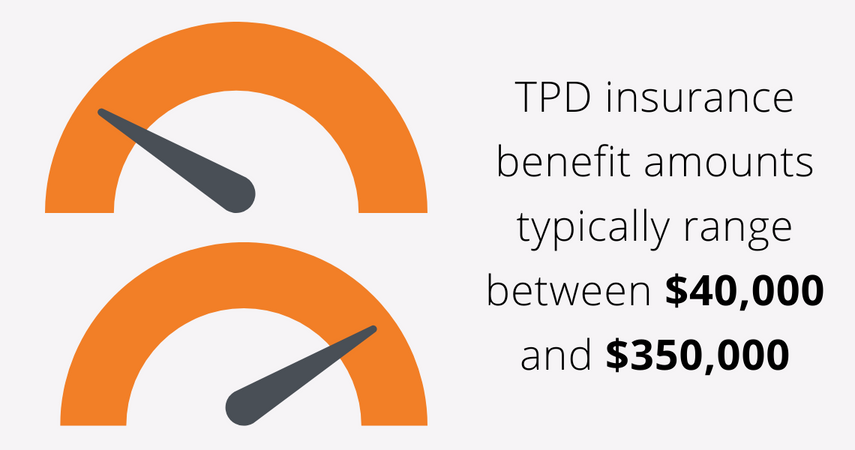TPD Claims for Depression

TPD, Total and Permanent Disability Claims for Mental Illness
TPD Claims for Depression and Mental Illness can be made through your superannuation fund if an injury or illness has left you unable to return to work. This includes not only physical injuries but also psychological or mental conditions, such as depression, which are common in TPD claims. If depression or mental illness prevents you from working, you may be eligible to claim total and permanent disability (TPD) benefits through your super fund.
Can I Claim Disability for Mental Health?
Mental health issues can significantly impact your daily and work life. If you’ve developed a mental health condition that has left you unable to work, you may be eligible to claim total and permanent disability (TPD) benefits. However, not all mental health cases qualify for a payout. Your claim will be assessed based on your specific condition and superannuation policy. It’s crucial that your mental health condition is diagnosed as a recognized psychiatric illness.
In summary, if you meet the criteria below, you may be eligible to make a TPD claim for mental illness.
- Stopped working due to injury or illness
- Stoppred working for an extended period of time, usually 3 or 6 months
- Are unlikely to work again in a field suited to your education, training, or experience
I am unable to work due to depression or mental health related conditions, what insurance benefits can I claim?
The most expected result from a TPD claim for mental illness is a single lump sum payment that will assist you monetarily given your inability to return to work. The amount of lump sum payment will usually depend on your superfund, age, and the scope of your policy.
TPD payouts in Australia typically range between $50,000 and $350,000. However, we have seen some TPD policies be up to $2,000,000.

TPD payouts typically range between $50,000 and $350,000. However, we have seen some TPD policies be up to $2,000,000.
The TPD amounts you may be entitled to depend on the type of insurance cover you have. Your insured benefit amount can be found in the fine print of your policy or superannuation member statement. If you have multiple superfunds or are not aware if you do, then its important you tell us as you could be eligible to make multiple TPD claims if you had active TPD Insurance at the relevant date.In that case, the amount can be significantly higher than the average TPD payout.
TPD Claims for Depression
Depression is among the most common mental health illnesses experienced by many people at some point in their lives. Not every depression case can be considered a permanent disability, however, since depression can take many forms and emerge in different levels of seriousness. More severe versions of depression are generally diagnosed as major depression, psychotic depression and bipolar disorder. Also, it can trigger schizophrenia indirectly.
In order to be able to make a TPD claim for your depressive illness, you usually must be able to provide medical evidence by way of a recognised psychiatric diagnosis, by way of a medical report documenting its severity to the extent of preventing you from returning to work.
Before proceeding to make a TPD claim for depression, you should inquire into the details of your superannuation policy to see what exactly is covered and what other evidence you may need to provide. Each policy has different requirements and different definitions of how they categorise TPD. Checking your policy requirements will help you identify the grounds on which your claim can be refused.
What are the Steps to Make a TPD Claim for Depression or Schitzophrenia?
Each superannuation insurance fund has its own process for lodging a TPD claim for depression or schizophrenia. Our TPD lawyers will guide you through what to expect once we know which superannuation fund you are a member of and after we obtain the policy and forms on your behalf. Alternatively, you could contact your insurer to request your insurance policy and coverage details. However, we recommend contacting our lawyers first, as the information provided by the fund or insurer may vary depending on the dates you are seeking. The documents from your superfund should clarify whether your policy includes TPD Insurance, the eligibility criteria, and the definition of TPD at the relevant date.
Our TPD lawyers specialize in helping clients lodge a TPD claim for depression and other mental health-related conditions, including schizophrenia. We will assist you in understanding your policy, advise you on the requirements for making a TPD claim, and act on your behalf throughout the entire process on a No Win No Fee basis.
To support your TPD claim for depression or schizophrenia, you will need medical evidence showing that your condition, whether it’s depression or a recognized psychiatric diagnosis like schizophrenia, has rendered you unable to return to work within your education, training, or experience.
As part of the process of making a TPD claim for depression or schizophrenia, we will gather all the necessary evidence, including medical reports, occupation details, payrolls, and other relevant documents that demonstrate your inability to perform your usual job due to your illness or injury. Each superfund has its own prescribed forms required to complete the TPD claim, depending on the specific policy.

Is it hard to receive a TPD payout for mental health including depression or schitzophrenia?
Depression or Anxietyare common health conditions that affect our clients’ ability to work which is why a lot of TPD claims are made for people who have depression or anxiety however you are required to have a recognised psychiatric illness. Depression and anxiety are symptoms only which on their own may not prevent you from returning to work that you are suited by your education, training or experience. Depression and anxiety are both common symptoms that are part of psychiatric illnesses though.
If you are suffering from depression and want a free claim eligibility check to know where you stand and whether you will be eligible for a TPC claim contact us!
Why could your TPD claim be refused?
Well, that could be, depending on your claim be as simple as not having the cover at the relevant date or as complex as not having a recognised psychiatric illness or not having enough evidence to meet the TPD The most
If you are concerned about your claim being refused or you have already received a refusal, we recommend you contact our TPD lawyers as soon as possible.
We can advise you on whether or not it has reasonable prospects of your TPD claim being approved prior to lodging your TPD paperwork and getting a nasty surprise before your application.
Also, our lawyers can dispute the insurer’s decision if your claim is refused or denied.
Can you work after a TPD payout?
Technically, yes you can work after a TPD payout. However, it is important to note that being eligible to receive a TPD payout means that you have convincing evidence that shows your total and permanent disability which makes you unlikely to ever return to work.
At the same time, this does not mean that you cannot go to work if your injuries get better thanks to a new treatment technique or any other reason.
However, usually, TPD payments are in the range of $40,000 – $350,000. You can reach our TPD lawyers to estimate your TPD compensation payment amount for mental health!
How can I know how much my TPD claim is worth?
The amount of lump sum payment you receive at the end of your TPD claim will depend on your insurance cover, age and whether you applied for top up cover. Our experienced TPD lawyers can estimate your TPD compensation payment. Call us on 1800 952 901.

Frequently Asked Questions
Schizophrenia can substantially affect a person’s work and daily life especially when it reaches the active and residual stages. Some doctors state that only 15-20% of schizophrenic patients are eligible to work.
If you believe you will not be able to work due to schizophrenia, you can consult our TPD claim lawyers and we can assess your eligibility to make a claim. The scope of your superannuation policy and the medical reports of your illness will be crucial in determining your eligibility.
Yes, you can if you have suffered a mental injury due to mental distress or anguish you can make a workers compensation claim. In order to make a successful claim for mental distress, your psychological injury must be diagnosable. If your employer was negligent, you may also beeligible for a Work Injury Damages payout.
In regards to TPD, you do not sue your employer but you may receive a Total and Permanent Disability payout as you will be dealing with your insurer, rather than your employer.
Absolutely. Hear us out first. There are various reasons why we would recommend retaining our TPD lawyers for your TPD claim.
Our TPD Lawyers work on a no win no fee basis, meaning you only pay for our TPD Lawyers legal fees if you receive a lump sum payment. That means if you do not receive a lump sum payment you will not be liable for our legal costs.
Our TPD Lawyers can assess the requirements of your superannuation policy without you having to worry about meeting the requirements and navigating through policies and definitions and guide you to achieve the best payout in the shortest possible time.
Also, you can get insight from our TPD lawyers about how to move forward if your claim was rejected by your insurer or superfund. As for the fee it is nominal compared to what you may be entitled to and it will be mutually agreed prior to us commencing work for your peace of mind.
Regardless of the injuries that you have suffered, it’s better to talk to a TPD lawyer once you discovered your injury. Also, you can consult our TPD lawyers at any stage of your claim process as we offer free claim eligibility checks.
Our TPD Lawyers provide a free claims assessment; meaning that you are able to have your TPD claim assessed for free. If you proceed and have our TPD lawyers working on your behalf our lawyers will work on a no win no fee basis that prevents you to make any upfront payments.
Yes, you may go back to work in some cases after a TPD payout regardless of your injury or illness. As a definition, TPD benefits are awarded to people who are unable to work, dependant on the specific definition in your policy.
The short answer is: It depends on your superannuation policy.
That’s because it depends on your circumstances and whether psychological injury which includes depression was in your policy as an exclusion or there was a pre-existing clause in your policy. Our lawyers need to review your individual policy to give a specific answer. Reach us to find out now.
TPD benefits will not be automatically granted. Once you get an answer from our TPD lawyers, we will need to make an official TPD claim to your insurer and present the necessary evidence. This evidence should include your medical evidence detailing whether or not you are capable of working despite your depression in any occupation, you are suited by within your education, training or experience. We will also need to provide proof of employment details as of the date you last worked along with meeting other policy requirements.
If you decide to work with our TPD lawyers, we will take care of all the legal details while you are focusing on your recovery.
Fair Work Australia states that an employee can take paid sick leave when they cannot work because of a personal illness or injury, which includes mental & stress-related illnesses.
This statement means that you can take a short stress leave if you suffer a stress-related physical or mental illness under your leave entitlements.
Is it paid?
Yes, it is paid however not under Total and Permanent Disability insurance. If you have suffered a serious mental health condition due to your working condition, you can make a workers compensation claim to get your wages and medical treatment covered. This is sometimes called ‘workers comp stress leave’. You can reach our Workers Compensation Lawyers for further information.

Reach our TPD lawyers for your depression
We can assess your situation in the best manner and guide you to achieve the best payout from your TPD claim. We remind you that we work on a no win no fee basis, meaning you will not pay our legal costs unless your claim is approved, and you receive a payment.
Our TPD Lawyers will also pay for associated costs such as medical reports and third-party documents that are required to support making your TPD claim upfront. We will only recover them from you from your lump sum payment upon being approved by the insurer or superfund.
That means you will not be out of pocket for the entirety of the TPD process until your claim is approved and you receive the lump sum payment.
Call our lawyers on 1800 952 901 or fill out the form below to start your free claim check.

Issa Rabaya
• Bachelor of Laws
• Graduate Diploma in Legal Practice
• Approved Legal Service Provider to the Independent Review Office
• Member of the Law Society

Issa Rabaya
• Bachelor of Laws
• Graduate Diploma in Legal Practice
• Approved Legal Service Provider to the Independent Review Office
• Member of the Law Society
Free Initial Consultation

Related blogs

When Should I Settle My Personal Injury Claim?
This is understandably one of the hardest decisions you would need to make in your personal injury claim. Regardless of whether it’s a car accident claim,

Total & Permanent Disablement (TPD) Superfund in Australia
What is TPD insurance in super? Superannuation, or just super, in short, refers to benefit funds for retirement. Employers are required to make payments to

Are You Getting What You Are Supposed to From Your TPD claim?
Before looking at what consumers are getting out of their TPD insurance and the effectiveness of their policies, it is important to define Total and

